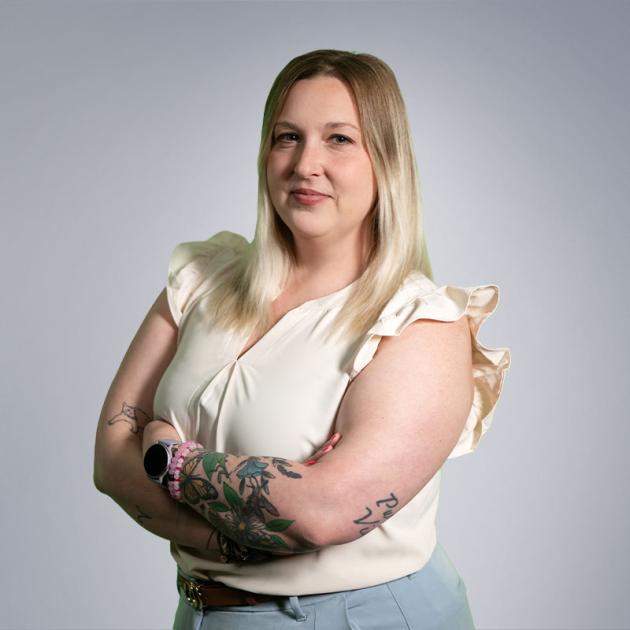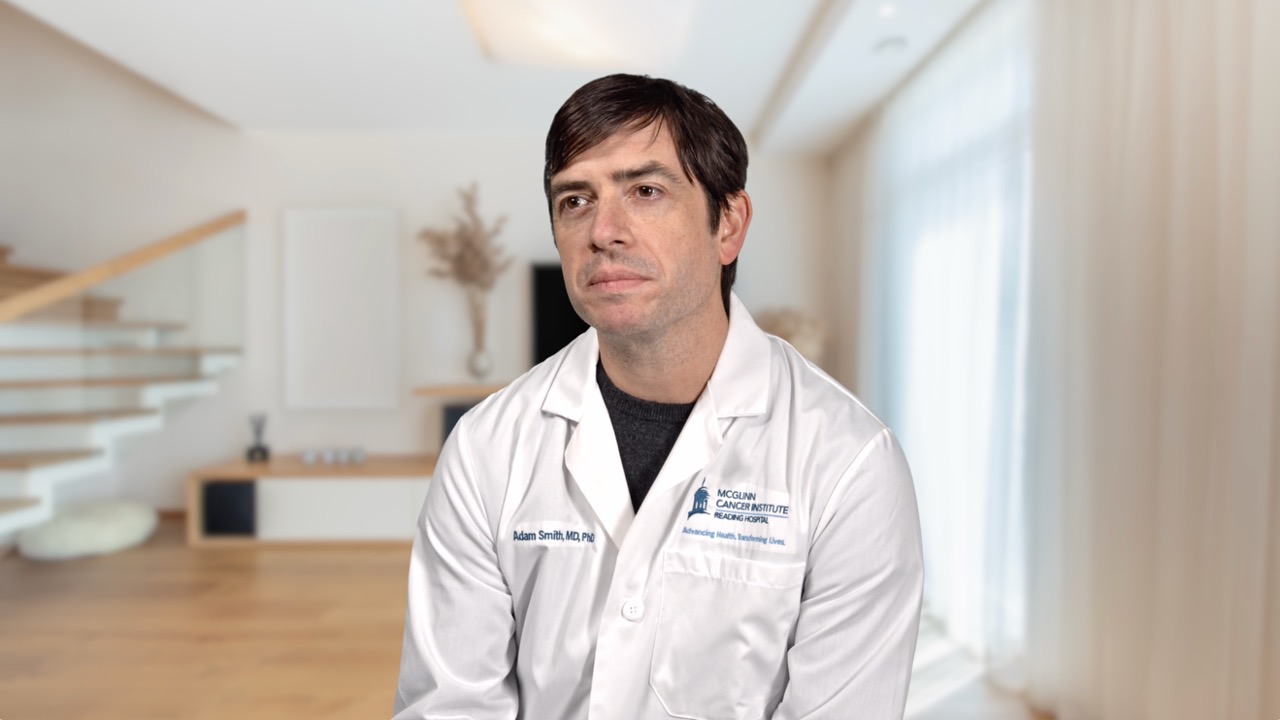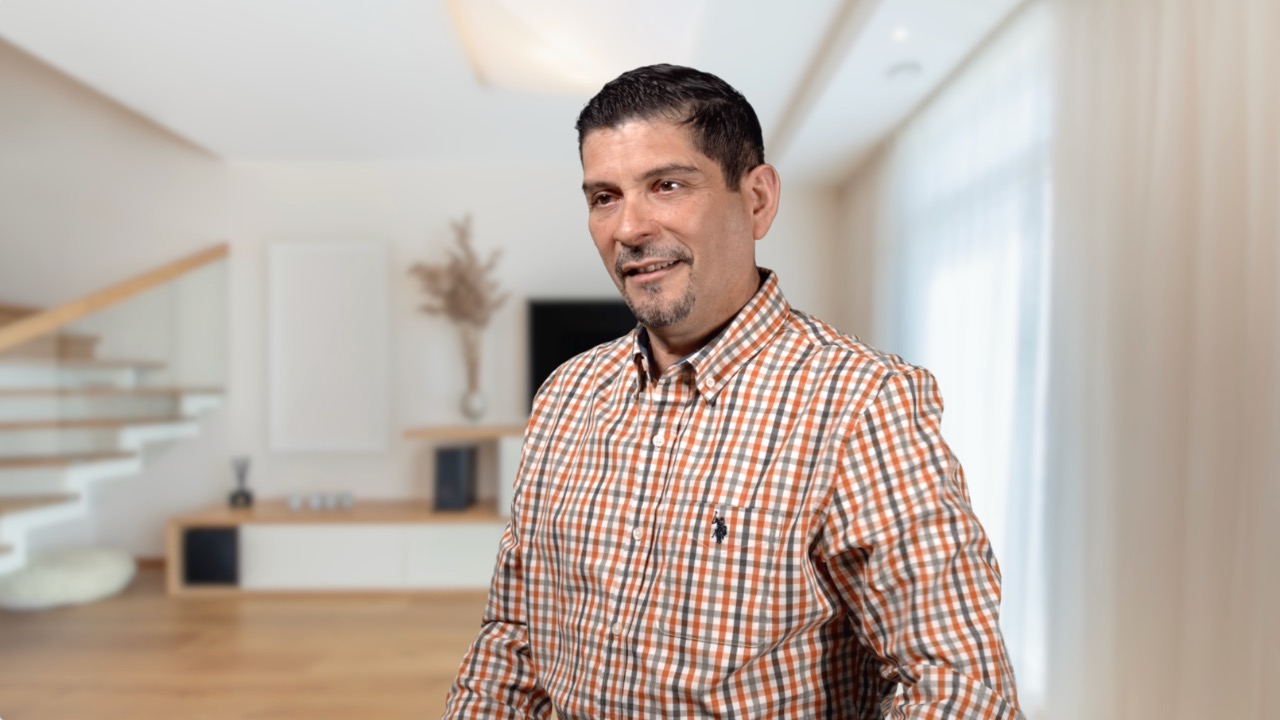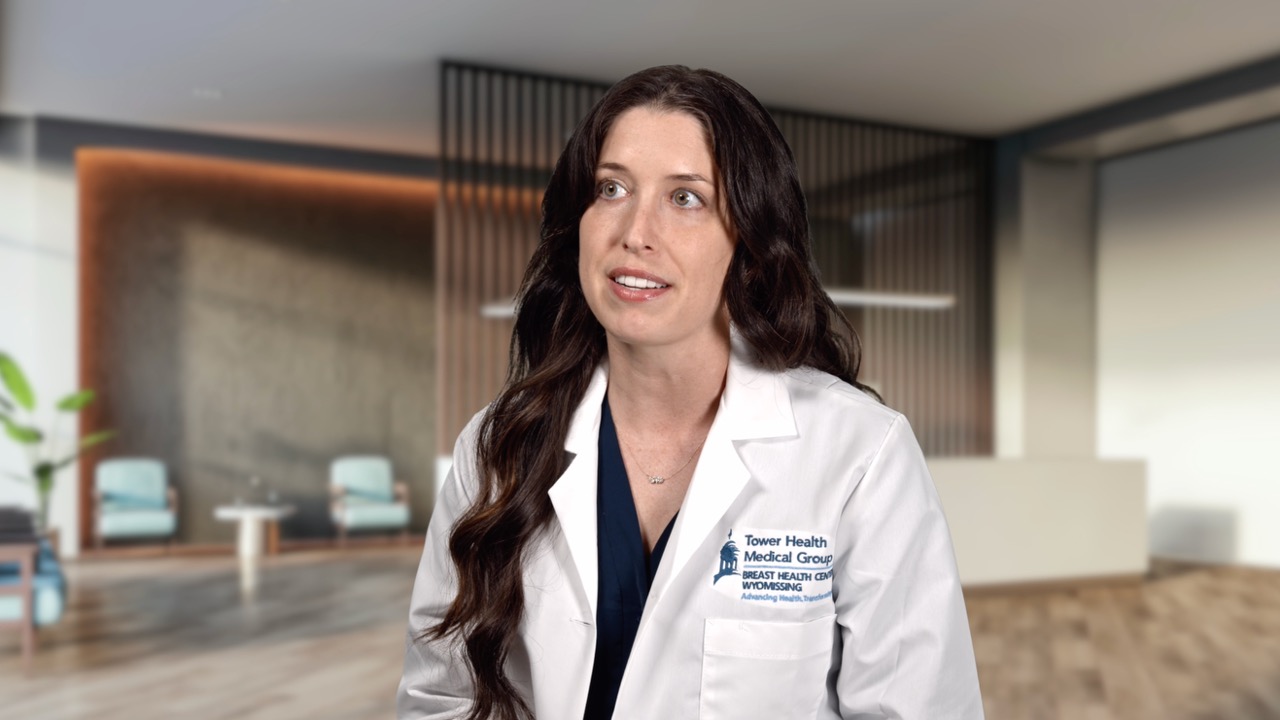
Ramah Williams Turns the Tables on Cancer
When Ramah Williams picked a career, she chose one of compassion and courage. As a radiation therapist at Reading Hospital’s McGlinn Cancer Institute, she helped guide countless patients through some of the hardest days of their lives.
“I felt I finally found my place and happiness with how my life was going, how my health was, and how I was mentally,” Ramah said.
Everything was normal, and normal was perfect.
But then normal vanished overnight.
In July 2024, at just 34 years old, the ground beneath her life gave way without warning.
She suddenly found herself on the other side of the care she was used to providing.
She was diagnosed with triple-negative breast cancer (TNBC), one of the most aggressive and difficult-to-treat forms of breast cancer.
“I was home alone when I received my diagnosis,” Ramah said. “My husband Alex was in Boston for work. I called him, absolutely hysterical. He ran to the airport and got the first flight home.”
Her life had stopped in time. People moved around her, outside the window, and out of her view, moving forward in their lives.
But Ramah’s life had hit the pause button.
Treatment
TNBC lacks the three common receptors—estrogen, progesterone, and HER2—that many breast cancer treatments target. It also carries a higher risk of recurrence, especially in younger women. Genetic testing soon revealed that Ramah carried a RAD51C mutation, the same inherited gene that had contributed to her mother’s breast cancer 15 years earlier.
Her diagnosis came 17 years after losing her grandfather to melanoma. That loss had been the first spark that drew her into oncology. Her mother’s battle with TNBC in 2009 – when Ramah was 19 – fanned the flames.
But suddenly she found herself on the patient side of treatment.
Only eight days after her diagnosis, Ramah entered the Keynote-522 protocol—16 rounds of chemotherapy and immunotherapy, followed by surgery. The chemo included doxorubicin, nicknamed the “red devil” for its harsh side effects.
“I did everything I could to stay ahead of it,” she said of the red devil.
She used cold capping to try to preserve her hair. It worked—for a while.
“I kept my hair for most of it, but the last four rounds thinned it a lot. Still, I kept about 60%. It helped me feel normal. When you look in the mirror and still see yourself, it matters. It really matters.”
Each treatment was followed by a Neulasta injection to help her bone marrow recover. The side effects?
“It felt like I’d been hit by a bus,” she said. “Every bone in my body ached.”
Recovery and Living Fully
But through it all, she smiled. She laughed. She kept going.
Her colleagues noticed. Her nurses, her doctors—even her patients—were struck by her positivity.
“I believe that attitude helped me get through it,” she said.
So did her support system: Her husband. Her best friend since 8th grade. Her family. Her McGlinn coworkers. And her nurse navigator, Sherri Wunderlich—also a friend and colleague.
“Sherri showed me how much heart she puts into her job. Now I know what patients experience. I get it,” Ramah said.
Ramah finished chemo on December 12, 2024. On January 7, 2025, she had a partial mastectomy and sentinel lymph node removal.
The pathology report brought the best possible news: pathologic complete response. No evidence of disease.
Still, the fight isn’t over. Ramah will alternate between MRIs and mammograms every six months. Her doctors recommend she consider having her ovaries removed in her 40s due to the RAD51C mutation. And even though she’s officially cancer-free, emotionally, she says, the hardest part came after treatment.
“During treatment, you’re just focused on surviving,” she said. “After surgery, everything slows down. That’s when the fear creeps in. What if it comes back?”
But Ramah isn’t living in fear. She’s living fully.
She’s making up for missed birthdays, dance recitals, weddings, and concerts. She attended the Phillies home opener this spring.
“It was such a fun day,” she said. “On the car ride home, I cried. I told Alex, ‘I finally feel normal again.’”
She now encourages others to do the things they’ve been putting off.
“Take the vacation. Go to the game. Buy the expensive concert tickets,” she said. “Facing your own mortality at 34 is a hard pill to swallow. But now, every day is a gift.”
Her experience as a patient reaffirmed her belief in McGlinn Cancer Institute.
“I’ve seen how we care for people,” she said. “You’re not just a number here. I knew this is exactly where I wanted to be treated.”
Her story is one of resilience, community, and unshakable spirit. She continues to support and inspire other women facing breast cancer.
And to cancer, she has one simple message:
“Dear Cancer: You can’t break me.”
Her husband, Alex, adds his own:
“You underestimated her strength, courage, and her will to fight and win.”
And win, she did.
More "Dear Cancer" Stories

“Dear Cancer: You’ve Got a Fight on Your Hands.”
With a PhD in computational chemistry and a deeply personal motivation rooted in the loss of his father to cancer, Dr. Adam Smith brings both scientific precision and heartfelt compassion to every patient he treats.

“Dear Cancer: I Turned Pain into Purpose.”
After months of hiding his symptoms, followed by a life-threatening scare, Amauris “Manny” Abreu was diagnosed with Stage 4 prostate cancer at Reading Hospital’s McGlinn Cancer Institute.
Make an Appointment
Cancer may change lives, but it doesn’t have to define them.

